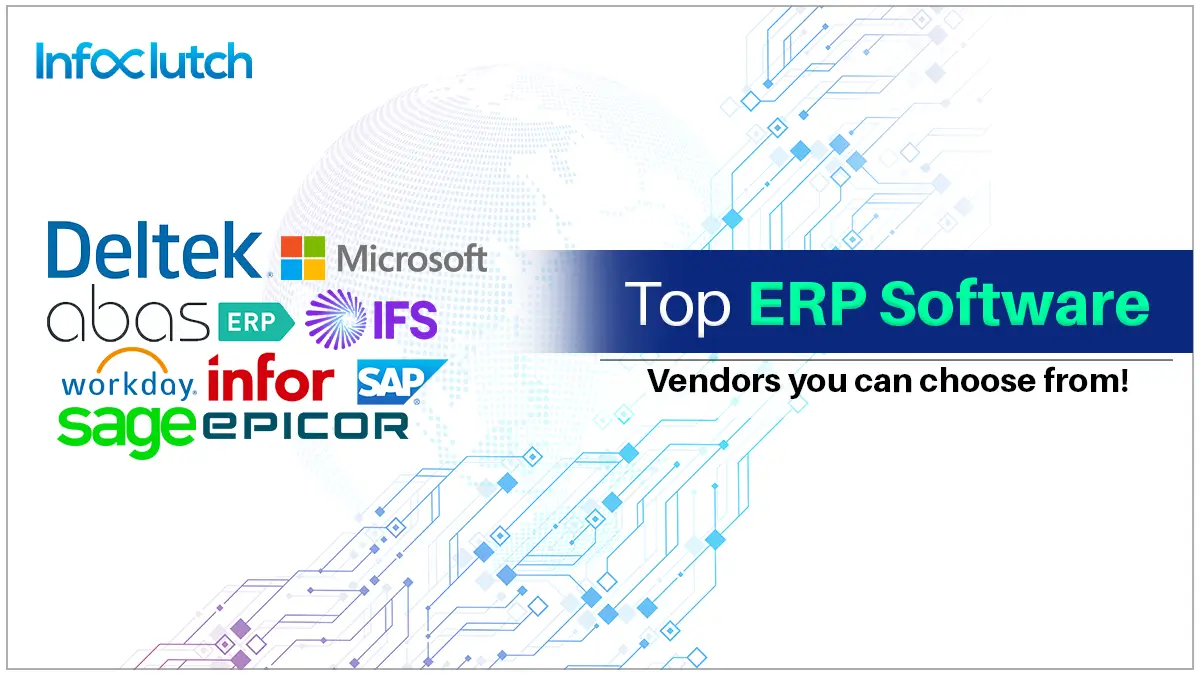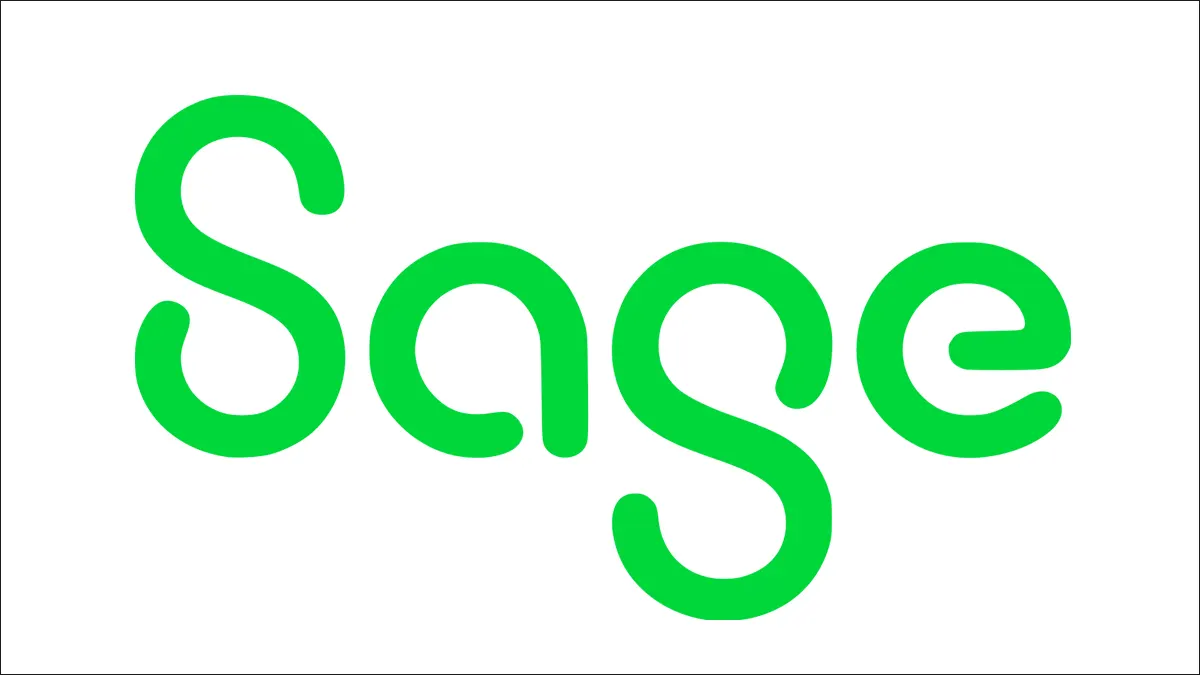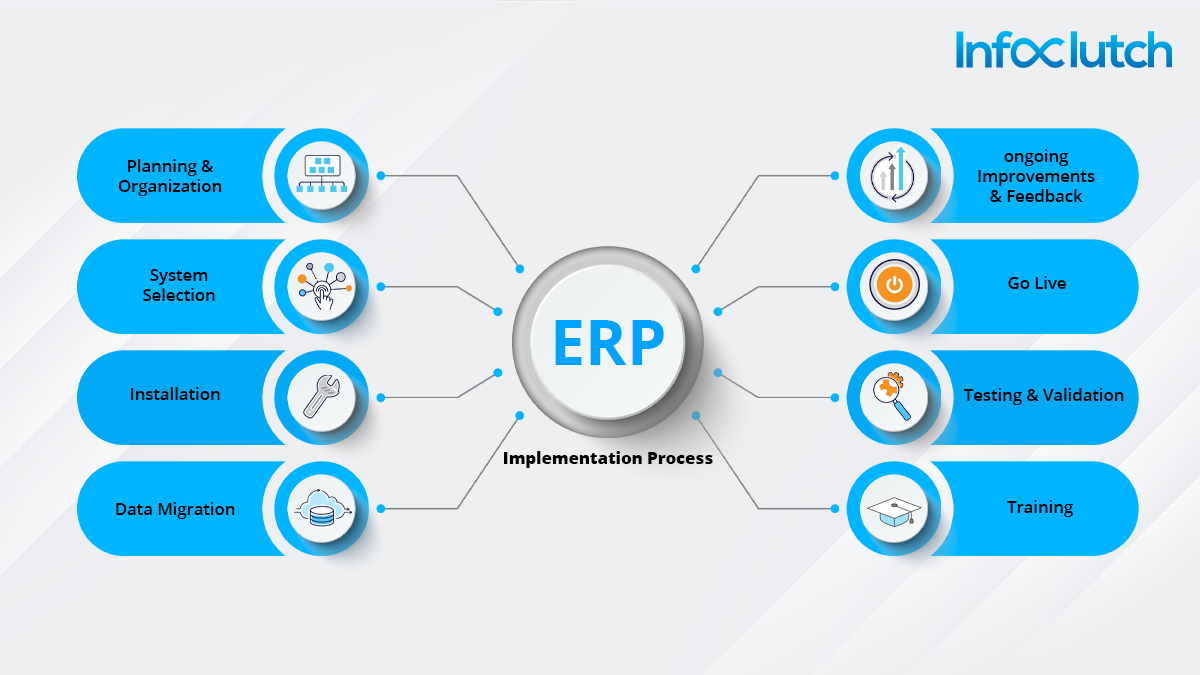
- Mar 24, 2023
- Posted By: Robert
- Category: Enterprise Resource Planning
The overall landscape of Enterprise Resource Planning (ERP) has been revamped from the ground up, and is headed toward an inevitable composable ERP. In essence, a composable ERP refers to a unified platform capable of running interoperable and configurable software programs. The concept of physical integration (on-premise) of ERP is now a thing of the past. With the inclusion of technology in ERP segment, top ERP vendors have cracked the winning formula. With the aid of technology, world’s top ERP vendors are acquiring more customers hence pushing the ERP software market share in higher values to USD 54.76 billion. Consequently, the CAGR (Compound Annual Growth Rate) of the industry also makes it to a whopping 11% by 2030. Furthermore, the current technological landscape offers an abundance of choices, making it challenging to choose the right ERP . Who offers the best features? Which platform is a bang for the buck? Which vendor provides the best support? Well, to make the right software choice, the following blog offers you a list of the top 10 ERP software vendors. Read on to know more!

Source: projectline.ca
A brief overview of ERP software
ERP, or Enterprise Resource Planning, refers to a particular software system that allows an organization to unify all its business processes into a single platform. This includes all the organization’s day-to-day processes, such as procurement, risk management, accounting, compliance, and so on. An ERP software goes a long way in simplifying and streamlining business processes across dense silos. As a result, all the various departments can co-ordinate, enhancing productivity and employee satisfaction significantly. Furthermore, owing to its functionality, ERP software systems have made quite a mark on the efficiency of countless organizations. In fact, a 2022 Gartner report also states that 65% of CIOs believe that Artificial Intelligence is going to make an entrance into ERP technology. So, which ERP vendor to go with? Who are the top ERP vendors holding a monopoly over the current market? Read on to find out!
The Top 10 ERP software vendors globally
According to a 2022 study, around 50% of the participant organizations are in the process of acquiring, or upgrading their ERP system. So, if you are still using traditional ERP systems to get the work done, here is a list of the top ERP software vendors:
| Company Name | Number of employees | Revenue (USD) | Website |
| SAP | 111,961 | 32.526 Billion | https://www.sap.com/india/index.html |
| Oracle | 138,000 | 46.072 Billion | https://www.oracle.com/in/ |
| Microsoft | 221,000 | 198.270 Billion | https://dynamics.microsoft.com/en-us/ |
| Sage | 11,228 | 2.494 Billion | https://www.sage.com/en-us/erp/ |
| Epicor | 4,600 | 839.9 Million | https://www.epicor.com/en-in/ |
| Infor | 17,000 | 3.300 Billion | https://www.infor.com/ |
| Workday | 17,700 | 6.216 Billion | https://www.workday.com/ |
| Abas | 1,504 | 347.9 Million | https://abas-erp.com/en |
| Deltek | 3,000 | 340.5 Million | https://www.deltek.com/en-gb |
| IFS | 5,000 | 820 Million | https://www.ifs.com/ |
Should you wish to delve into a brief introduction about these top ERP software vendors, read on!
1). SAP

Source: corealm.com
From the release of the original ERP system in 1972, SAP has dominated the market for business applications. Currently, SAP covers about 10.63% of the global ERP market. SAP ERP systems give your company access to tools made to streamline corporate operations and give you a competitive edge. This is made possible through the CRM, supply chain management tools, and integrated financial management technologies. Their software follows a scalable approach, allowing you to customize the program to meet your particular needs. Pros
- It offers quite a few subscription models and is already well-established.
- Houses great database management tools.
- Processes are much faster, with shorter implementation times.
- The platform also offers smooth interoperability between the ERP and other offerings by SAP.
- Availability of business planning, finance management, and supply chain management tools.
- Comes with Artificial intelligence for seamless automation.
Cons
- The setup for this ERP software demands copious amounts of technical expertise.
- Since this ERP is expensive, it is feasible only for companies with extensive resources at their disposal.
- If you are unfamiliar with ERPs, the experience may be slightly overwhelming and it may get confusing to get around its user interface.
2). Oracle
Oracle ERP is still cruising comfortably as the leader of the ERP vendors market share by a whopping 5.78%. Oracle’s NetSuite ERP offers two exclusive cloud-native offerings. Initially released in 2016, NetSuite generally targets midrange businesses. Furthermore, all oracle cloud applications have been developed by leveraging machine learning, which means that they offer quite a refreshing UX, with attention being paid to a customer-first approach. Taking the success of Oracle ERP into consideration, the tech behemoth churned around USD 10 Billion in 2021. Pros
- Receives updates every 90 days.
- Includes key features such as Business analytics, financial management, artificial intelligence, supply chain management, and so on.
- This ERP is quite easy to navigate.
- Also offers quite an extensive set of standard business features.
- The homepage is customizable.
Cons
- Again, this ERP is quite expensive.
- Relatively lesser customization options for an on-premises ERP.
- Processes such as setting up admin roles, sales processes, onboarding, demoing, etc., are pretty convoluted.
3). Microsoft

Source: dynamics.microsoft.com
With its extensive line of Dynamics products (available in cloud or on-premises incarnations), Microsoft ERP is primarily aimed at small to medium organizations. The organization has established itself as a prominent leader in the ERP market. In fact, Microsoft Dynamics covers a market share of around 27.81% of the ERP vendors market share. Microsoft essentially offers a suite of products under the title of Microsoft Dynamics 365, and it comes with a thorough suite of services organizations can choose from. Pros
- Quite intuitive and easy to use, should you have experience using Microsoft products in the past.
- Marketing and sales pipeline processes are streamlined.
- Customer reviews dictate that it is considerably inexpensive.
- It is widely supported.
Cons
- Should you seek nothing more than a single module, the interlocking group of services offered by the platform can be tedious to navigate.
4). Sage

Source: erpfocus.com
Sage Business Cloud offers powerful ERP apps and technologies to simplify business processes for your enterprise. For small businesses seeking straightforward and affordable solutions for accounting, purchasing, customer support, production, sales, and labor management, these ERP apps are ideal. In fact, the accomplished Sage Cloud X3 paves the way for everything from financial administration to production management. Furthermore, Sage covers about 3.22% of the overall ERP market. Pros
- Offers a plethora of top-notch features including financial reporting, budgeting, quality control, supply chain management, invoice creation, project management, and so on.
- All these features follow great UX (User experience) design and can be used by employees with a non-technical background.
- Offers an abundance of tools.
- The ERP streamlines and simplifies the overall financial management process.
Cons
- The platform is not very customizable.
- If you wish to enable detailed reporting, you will have to download add-on software.
5). Epicor

Source: softwareconnect.com
For more than 25 years, Epicor has been a pioneer in ERP systems, with a particular emphasis on the manufacturing, distribution, retail, and services sectors. The popular ERP vendor covers around 2.67% of the ERP vendors market share. They all have a modular architecture that enables you to choose which features are needed and implemented without compromising performance quality. Since then, it has also made significant headway in the direction of mobile solutions, IoT, big data analytics, and so on. Pros
- Will allow you to indulge in no-code or low-code functionality.
- Workflow is quite efficient.
- Offers brilliant functionality with a wide range of features such as end-to-end integration, global collaboration and communication tools, air-tight security, and so on.
- The software also displays real-time data and tracking.
Cons
- Some of the workflows can get quite burdensome.
- No provision for cloud documentation.
- Customers’ note training can see some improvement.
6). Infor

Source: infor.com
Infor has cemented its name in cloud computing since 2010, when they began aggressively upgrading their product offerings and started providing digital solutions for practically every industry. In fact, Infor holds around 0.45% of the total ERP market share. The vendor’s cloud suite line now makes room for over a dozen alternatives for field service, distribution, manufacturing, and consumer packaged goods. Pros
- Perfect for massive industrial organizations.
- The platform is considerably customizable and flexible.
- The platform also offers quite a few deployment options.
- Offers a great deal of features such as automation, sustainable data, real-time data, smart manufacturing insights, and so on.
- Accessing customer history and profiles is relatively straightforward.
Cons
- The customizable UI plays to the platform’s cons, since it requires considerable configuration and causes issues.
- The learning curve is quite steep.
- The UI looks cluttered or outdated at times.
7). Workday

Source: softwareconnect.com
Workday initially started their venture as a SaaS-based HCM application (Human Capital Management). However, the organization also takes a dive into Enterprise management for service-based companies. Pros
- Offers real-time updates.
- This particular ERP specializes in managing organizational finances.
- Offers a great deal of features, including financial insights, performance tracking, skills management, HR services, and so on.
- Offers real-time updates.
- The dashboard is quite robust, and displays business processes quite effectively.
Cons
- This particular ERP is quite expensive.
- No provision for batch processes. This will force you to get certain tasks done individually.
- Shows multiple similar messages at times, making it quite overwhelming.
8). Abas
Abas ERP is ideal for manufacturers who are either growing, or midsize. This includes the likes of automotive, plastic technology, electrical engineering, and other such manufacturing industries. As a result, Abas ERP covers about 0.07% of the overall ERP vendors market share. Some additional benefits that entail an Abas ERP solution include automated plant data collection, quality management, service assignment planning, warehousing, and so on. The vendor offers a single platform, and hence can tailor the ERP to the specific needs of the manufacturer. Pros
- Offers straightforward integration with other software.
- Offers a suite of features favorable to midsize or growing organizations.
- Also offers coding classes to hand the customization of the platform over to you.
- Offers a plethora of features, including sales tools, manufacturing process management, IOT support, finance tools, and so on.
Cons
- Its scheduling tools aren’t suitable for large companies.
- Granular supply chain management, paired with quite a complicated inventory and billing section.
- Can be challenging to implement.
9). Deltek

Source: bcsprosoft.com
Deltek’s ERP solutions cater primarily to project-based businesses operating in industries like marketing, IT, and accounting. This is because the organization offers niche tools that can adapt to the particular client’s needs. Therefore, Deltek holds power over 0.64% of the overall ERP vendors market share. Scalability is Deltek ERP’s USP, and it is perfect for government contractors. Furthermore, these solutions are available in both on-premises and cloud variants. Pros
- You can scale this platform to the size of your company.
- It may prove pretty useful to enterprises working alongside the government on a contract basis.
- It helps monitor and boost overall productivity.
- Offers a plethora of features, including project life cycle management, on-premises, and cloud integration option, financial planning tools, end-to-end project management, and so on.
Cons
- Saving all your work can be a little tedious.
- Certain features demand you to export files to third-party programs such as Microsoft Excel.
- All the information is displayed on a single page, making it difficult for you, especially if you are used to tabs.
10). IFS

Source: softwareconnect.com
IFS has been in the ERP roster for quite some time, and it primarily deals with industries such as construction, defense, aerospace, engineering, and so on. Since it is entirely mobile and utilizes the IFS cloud, the IFS Cloud ERP is 100% composable. You can customize workflows, swap in alternate modules, and so on, to offer accessibility and ease of use. A result of this functionality IFS is holding around 0.15% of the overall ERP vendors market share. Pros
- It is a unified system that offers all solutions.
- The software architecture is quite flexible, allowing it to make room for the various types of businesses it caters to.
- It can be integrated on-premises or on the cloud.
- Offers an abundance of features, including enterprise asset management, CRM integrations, business analytics, and so on.
Cons
- Customer service is flaky.
- The user interface is quite cluttered.
- Integrations can get cumbersome, since it is a single system.
Wrapping Up

Source: acumatica.com
For far too long, traditional ERP systems have paved pathways for organizations to run and complete all important business processes via a single platform. However, these traditional variants are quite obsolete and offer much less in terms of features and accessibility, as compared to the current generation ones. Consequently, a certain study also concludes that 93% of the participating organizations have had successful and profitable ERP integration. As a result, the ERP software market size has seen a significant bump in recent years, ushering in better advancements into a rapidly advancing piece of technology. So, if you are someone who markets to ERP customers, you might be able to boost your revenue, given that the adoption of ERP is so widespread. Lastly, go through the article carefully, weigh out the pros and cons of services offered by the biggest ERP vendors, and make an informed decision.
F.A.Q
Some of the biggest ERP vendors as per the current market are as follows:
- Oracle
- Microsoft
- SAP
- Sage
- Epicor
- Infor, and so on.
Microsoft is the most popularly used ERP, and it comfortably holds the lead when it comes to having the biggest ERP vendors market share. They hold an astonishing 27.81% of the total market share.
Some of the popular global organizations using ERPs are as follows:
- Amazon
- IBM
- eBay
- Apple
- Walmart, and so on.
A Truelist 2023 survey concludes that 78% of organizations have at least integrated some sort of ERP.
ERP platforms essentially unify and seamlessly connect all business processes into a single condensed platform.
As a result, you can automate processes, check inventory, streamline various monolithic processes, and so on. Consequently, downtime reduces, scheduling sees improvement, and duplication is reduced.
There are essentially two types of ERP vendors present in the current ERP technological landscape, namely:
- Horizontal vendors: These vendors offer solutions to multiple industries and niches.
- Vertical vendors: These vendors offer comprehensive solutions to only select industries.
Microsoft comfortably holds the lead when it comes to having the biggest ERP vendors market share. They hold an astonishing 27.81% of the total market share.
The four factors that you must primarily consider while choosing the right ERP are:
- Industry
- Resources
- Company size
- Requirements


